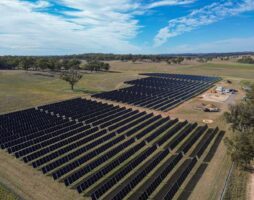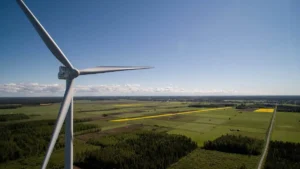The Abbott government is taking its cue on climate policy from big business and industry, and not from the science, says the Climate Change Authority’s Bernie Fraser.
Speaking at the National Press Club on Thursday, the Authority’s chair expressed (frequently) his puzzlement at the reluctance of Australia’s federal government “to embrace the science, despite its credentials, and to perceive of the urgency of doing something; of at least starting the task” of tackling dangerous climate change.
Less surprising, he said, was the reaction from big business and industry to the CCA’s final report on Reducing Australia’s Greenhouse Gas Emissions, released last month, which called for a “significant tightening” of Australia’s existing commitment to cut emissions, and recommended a trajectory resulting in reductions of between 40 and 60 per cent below 2000 levels by 2030.
“There are lots of people, many smaller business people out there, who accept the science and support policy to reduce emissions,” Fraser said. But he added that these smaller businesses were often “shouted down” by bigger companies.
“A lot of Australia’s big companies, particular in the energy industry and in mining – it’s fair to say – were hostile to the report” – an unsurprising response, said Fraser, although he stressed that the “scale and brazenness” of the recent campaigns waged against the mining tax and the carbon price was unprecedented.
“It would be nice to think that the big companies involved in coal, electricity… could see that they, too, might need to become more willing participants in the (climate action) debate we have to have,” Fraser said. “But to get there, the government has to want to have that conversation.”
“If policy makers accept the science , they must act on it,” Fraser said. But instead, “the government is backing in business interests ahead of community interests.”
“The price on carbon is to go, the RET is to be reviewed and possibly headed for a downgrade… What has been made clear is that the scale of the (abbott government’s) emissions reduction fund effort will be determined primarily by budget considerations and not by climate science.”
Fraser called for an “informed and mature dialogue” on climate change and Australia’s contribution to restricting global warming to 2°C, in line with the actions of the rest of the world.
“China and the US and Europe and India… they are taking these matters seriously, and are putting in place systems to commission off old fossil fuel generating capacity.
But Fraser said that the pressure to fully exploit Australia’s generous endowment of fossil fuels seemed harder to reconcile here than in other countries. “The longer term community interests are being overwhelmed by short-term business interests.”
“In short,” Fraser said, “we need a transformation of current attitudes to keep in step with the current transformation to a low-carbon world.”
But for this to happen, said Fraser, would “require the leopard to change its spots.” The debate on climate change, he added, “seems destined to be lopsided for a long time to come.”
On the subject of how to meet the CCA’s recommended emissions reduction targets, Fraser said that this point in time, the Authority recommended that the purchase of international permits was the most sensible, cost effective way of achieving the 2020 target.
“Clearly, there’s a lot to be said for doing as much as you can domestically,” Fraser told the Press Club. “The problem as far as the 2020 target is concerned, is that it we don’t have long.
Domestic solutions, such as long-term investments in renewable energy and energy efficiency, would take quite a long time to yield results, Fraser said – “even in a favourable environment, which is not necessarily what exists now.”
“Considering this,” he added, “we will have to rely quite significantly on international emissions reductions.”
But Fraser said that, given the complexity and urgency of the climate change challenge, we should be prepared to use “as many tools in the toolkit” as we can.
He pointed to a number of sectors in the Australian economy where there were opportunities to achieve significant emissions cuts – pieces of low-hanging fruit, such as the introduction of CO2 emissions standards for light motor vehicles.







